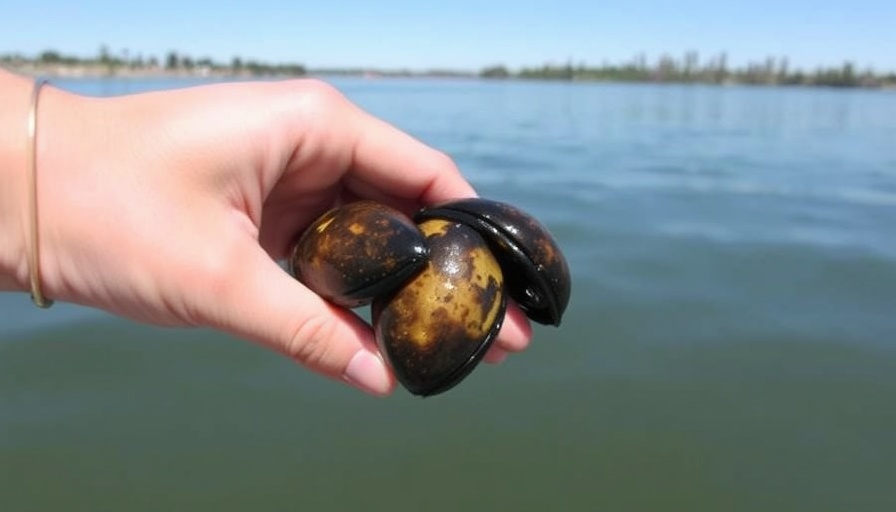
Understanding the Golden Mussel Threat in California
Invasive species can pose serious threats to local ecosystems, and the ongoing situation with golden mussels in California is no exception.
These tiny aquatic bivalves, originally from Asia, are making their presence known in Sacramento-area lakes.
After their initial detection in the Port of Stockton last fall, the mussels have moved through connected waterways, raising alarms among water and wildlife officials.
Why Are Golden Mussels a Problem?
Golden mussels are not just harmful to the environment; they can also wreak havoc on critical infrastructure.
They have shown the ability to invade water systems, clogging pipes and disrupting power generation, particularly at vital sites like the Folsom Dam.
With their rapid reproduction and adaptability, once established, these mussels can outcompete native species, further endangering local wildlife.
New Rules in Response to the Evolving Crisis
To combat the spread, officials are instituting stricter boat regulations at Folsom Lake and Lake Clementine.
Starting Monday, all trailered or motorized boats must undergo inspection and a 30-day quarantine before making a splash in these beloved waters.
Mike Howard, superintendent of Folsom Lake State Recreation Area, emphasizes the importance of these actions, stating, "These prevention measures are a far better alternative to closing the lakes to vessels or facing a golden mussel infestation."
This proactive approach underlines the collaboration between California State Parks and the U.S. Bureau of Reclamation to protect local resources.
The Role of Boaters in Protection Efforts
Boaters play a crucial part in preventing the invasion of golden mussels. Boaters and paddlers are encouraged to follow the “Clean, Drain and Dry” guidelines before venturing out.
This means ensuring their watercraft is completely clean, drained of water, and dry before arrival. Regularly adopting these practices not only helps protect the lakes in Sacramento but also extends to other waterways around the state.
Broader Implications for California Waters
The invasive golden mussel crisis is not limited to local lakes. Its implications stretch throughout the state, including the pivotal Lake Tahoe, where mandatory decontamination is now required for all motorized boats.
With environmental concerns on the rise, how California manages its water resources will be under scrutiny.
As Dennis Zabaglo from the Tahoe Regional Planning Agency notes, "Golden mussels are a greater threat to Tahoe than other aquatic invasive species.”
Local Actions Against Invasive Species
In light of the increasing threat posed by golden mussels, Rancho Seco Lake has also implemented emergency rules aimed at controlling the situation.
Taken together, these measures form a robust network of actions designed to curb the advance of invasive species and preserve California's diverse aquatic ecosystems.
Conclusion: Taking Action Together
As we engage in outdoor activities, it's important to stay informed about invasive species and their potential impacts.
The collective efforts of boaters, park officials, and local communities can help safeguard our precious water resources.
Interested readers can further explore the specific guidelines and inspection processes available at the designated parks in Sacramento. Let's work together to protect our lakes and ensure their beauty for generations to come!
Find inspiration for everyday living, local culture, and community connection in the Sacramento Lifestyle category, or visit Sacramento Living Well to explore all our latest wellness and lifestyle articles.
---
Authored by the Sacramento Living Well Editorial Team — a publication of DSA Digital Media, dedicated to highlighting wellness, local living, and inspiring community stories throughout Greater Sacramento.
 Add Row
Add Row  Add
Add 





Write A Comment